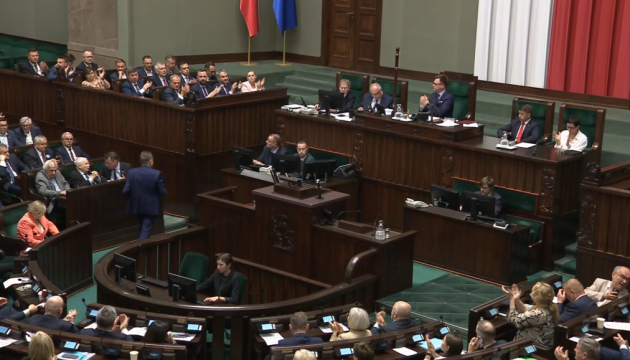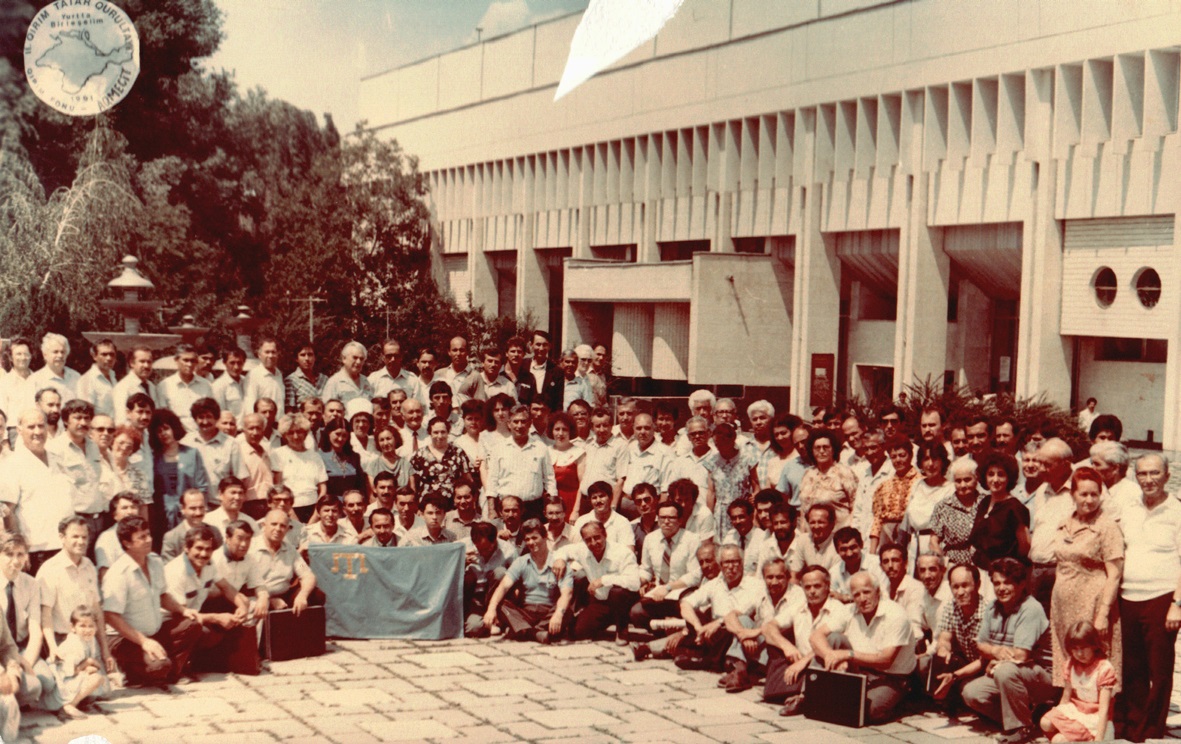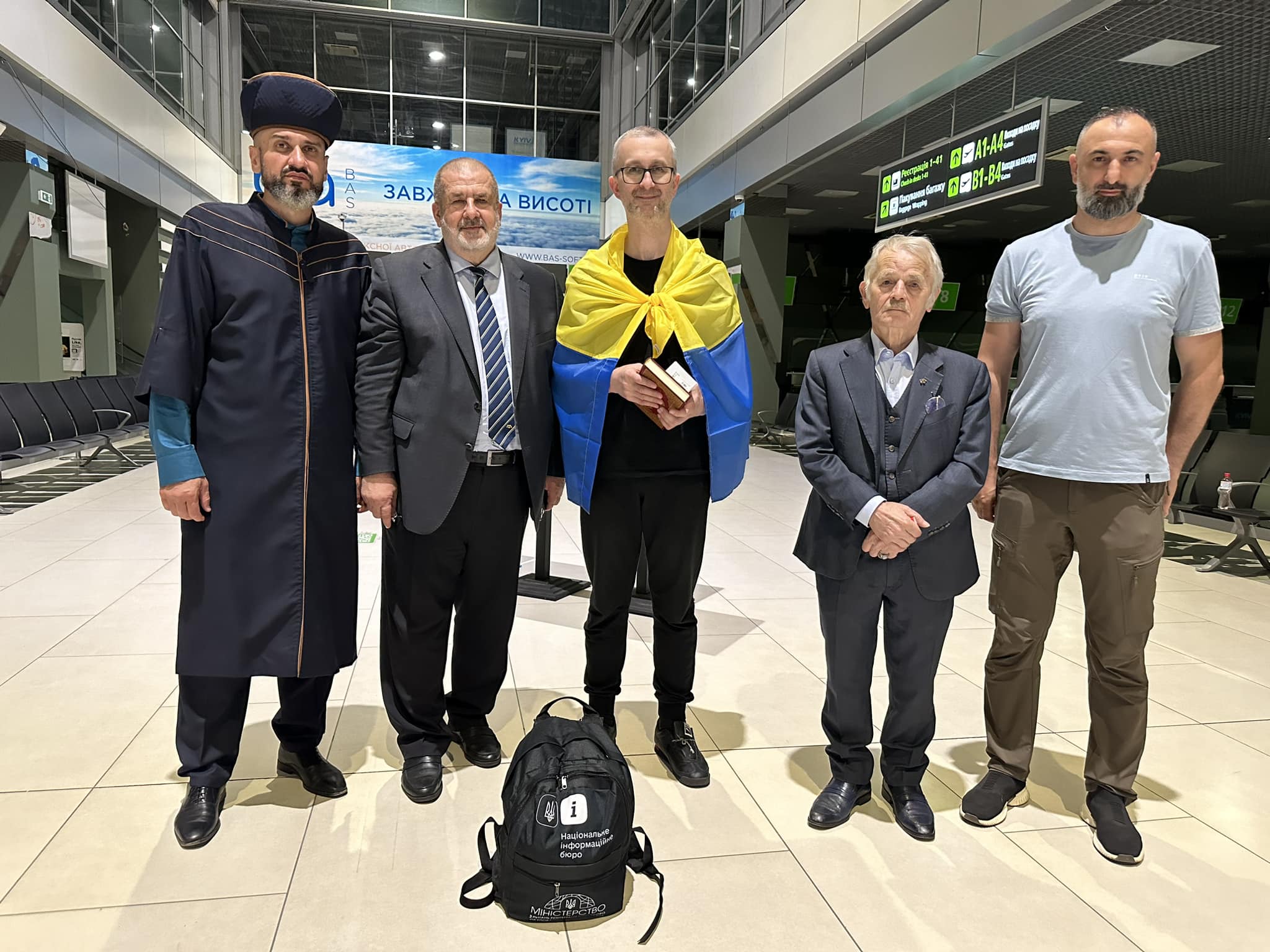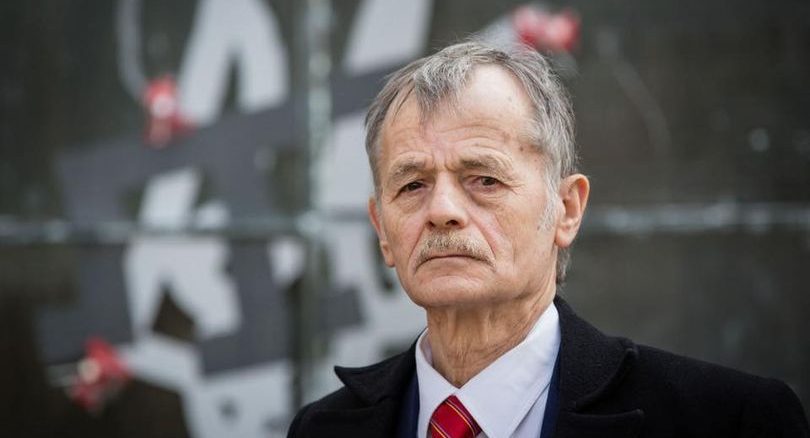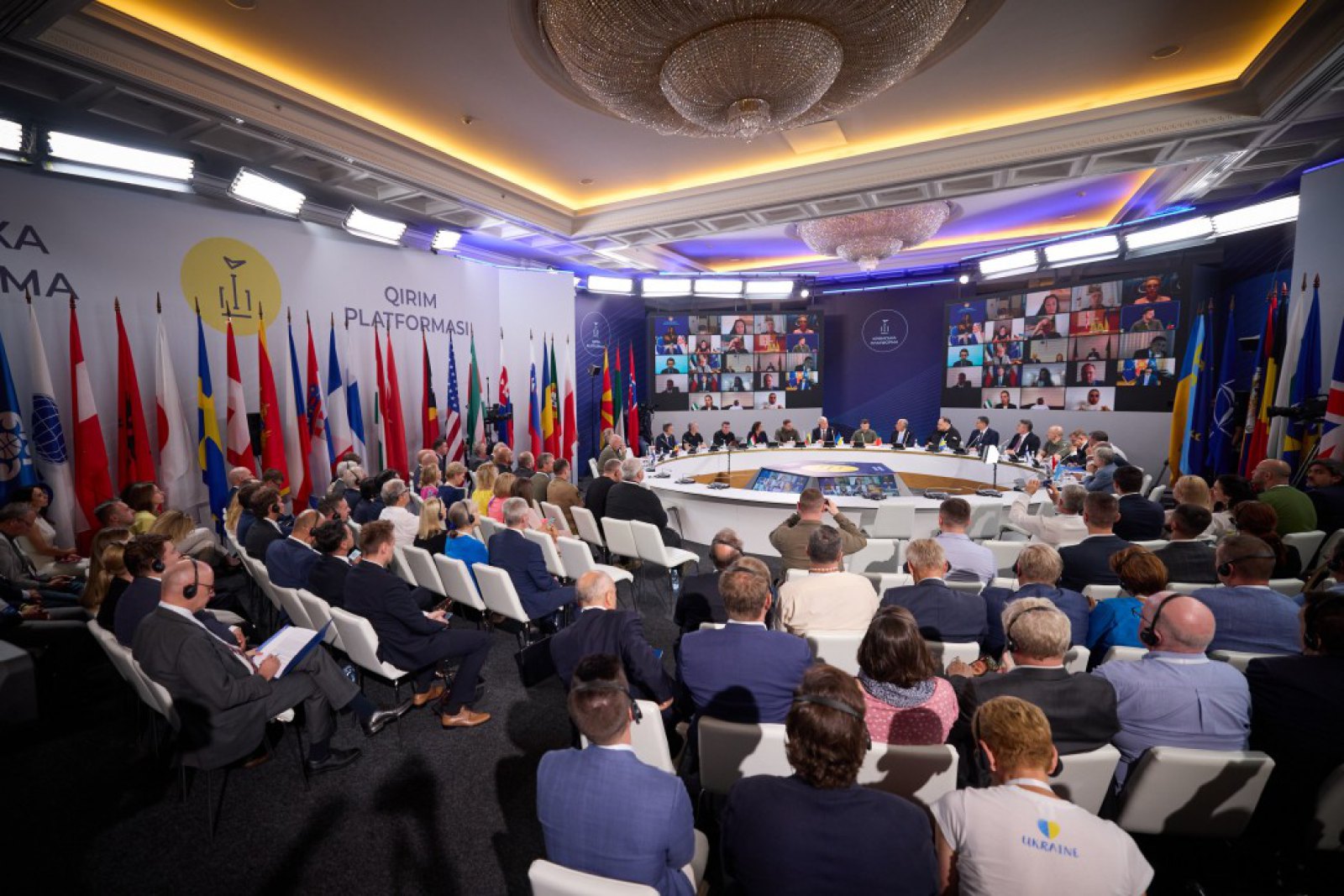Statelessness Protection Officer for Europe with UNHCR Visits Mejlis of Crimean Tatar People

On July 10, 2013, Mr Refat Chubarov, First Vice Chairman of Mejlis met Ms Inge Sturkenboom, Statelessness Protection Officer for Europe with UNHCR.
Mr Dmitry Plechko, Legal Adviser of the Office of the UN High Commissioner for Refugees in Ukraine (UNHCR) and Mr Ahtem Zeitullaev, CEO of the Foundation on Naturalization and Human Rights “Assistance” accompanied the guest.
The meeting was also attended by Mr Ali Hamzin, Head of the Foreign Relations Department at Mejlis and Mr Zair Smedlyaev, Head of the Secretariat at Mejlis.
During the meeting the parties discussed in details the issues relating to the procedure of determination of the legal status of the Crimean Tatars that return to their historical homeland from the places of their deportation.

“The goal of my visit is to study the UNHCR’s activity to solve the citizenship problems, because on June 23, 2013 “Convention on the Reduction of Statelessness” and “Convention Relating to the Status of Stateless Persons” took force in Ukraine. We also have partners of the UNHCR in Crimea – the Foundation on Naturalization and Human Rights “Assistance” and I’m interested in studying their scope of rights and duties. I also pay much attention to the duties of the representatives of the UNHCR in issues relating to the persons without citizenship and formerly deported persons,”- Ms Inga Shturkenbum said.
Ms Inge Sturkenboom, Statelessness Protection Officer for Europe with UNHCR noted that she recently met with the team of the Foundation “Assistance” and examined how their everyday work corresponds to the statelessness mandate.
Addressing the Mejlis leaders the guest asked them to comment on the dynamics of the return of the deported Crimean Tatars from Uzbekistan and other CIS countries to Crimea for the recent period.

“The office of the UNHCR in Ukraine and its activity in Crimea is extremely important for Ukrainian citizens and our people in particular. The large state collapsed around 20 years ago. The new states started adopting their own citizenship laws and they often didn’t consult with each other. The most important thing for us is that the process of the return of the Crimean Tatar people to their homeland has begun. The return started in the framework of the single state and has been continuing after its collapse. Everyone who adopted the law on citizenship didn’t give much thought about the Crimean Tatars. We had such situation when we had more than 80 thousand Crimean Tatars who had returned to Crimea and lived in Ukraine having the citizenship of Uzbekistan and couldn’t obtain the citizenship of Ukraine. Such were the rules – legal and financial collision. We could solve this problem mainly due to the UNHCR,”- Mr Refat Chubarov, First Vice Chairman of Mejlis said.
He also noted that the special agreements between Ukraine and Uzbekistan on the issues relating to the simplified procedure of the renunciation of Uzbek citizenship and obtaining of Ukrainian citizenship during the period from 1998 to 2001 facilitated significantly the solution of these problems with the assistance of the UNHCR.

“We do our best to make all our nationals return to Crimea and obtain Ukrainian citizenship as soon as possible. We cooperate actively with the Foundation “Assistance”, but there are various objective reasons that neither we, nor the Foundation “Assistance” could speed up. I mean the issues relating to the diplomatic bureaucracy especially in Uzbekistan. It’s a real problem to get response from the state bodies of Uzbekistan. Sometimes we have to send many letters concerning the same issue.”
Mr Chubarov informed the UNHCR Officer that presently around 80-120 thousand Crimean Tatars live in Uzbekistan, including 1.5 thousand Crimean Tatars that obtained the citizenship of Ukraine.
The UNHCR Officer asked “What this difference in the number of the formerly deported Crimean Tatars returned from Uzbekistan today is caused and are there any obstacles in this process?”
Mr Refat Chubarov stressed that one the main reasons that doesn’t let the Crimean Tatars returning to their Homeland is undoubtedly the financial issue. “People can’t sell their property in Uzbekistan for a reasonable price in order to purchase something decent here. Of coarse there are other reasons, but settling in Ukraine is far more difficult as far as the financial aspect concerns,”- the First Vice Chairman of Mejlis noted.

The Head of the Foreign Relations Department noted that since 2006 Ukraine made the return of the Crimean Tatars more complicated. It officially demanded through the Ministry of Foreign Affairs of Uzbekistan to withdraw from the citizenship of Uzbekistan the Crimean Tatars who return to Crimea only on provision that they have the permission to the immigration to Ukraine, issued by the Embassy of Ukraine to Uzbekistan. Ms Inge Sturkenboom was given the copy of the note of the Embassy of Ukraine to Uzbekistan concerning this issue.
After that Mr Ali Hamzin noted that this position of the Ukrainian authorities is illegal and violates the law of Ukraine. He noted that the law of Ukraine “On Immigration” (item 1, article 6) provides another variant of issuing the permission to registration of the foreign citizens, stateless persons that arrive at Ukraine on the legal basis that is less expensive and trouble-free.

In this form or another it is one of the obstacles to the process of the return of the Crimean Tatars to Crimea, Mr Ali Hamzin noted and proposed to make the detailed analytical note concerning the situation around the return of the deported Crimean Tatars since 2000.
During the meeting Mr Refat Chubarov also expressed his confidence that the interest of the international organizations to Ukraine is directly related to the preparation of Ukraine to the ratification of the EU – Ukraine Association Agreement.

“Today Ukraine as an independent state prepares to become the member of the European community and to my opinion many international organizations observe and evaluate actively the actions of Ukraine. One of the observation objects is the return of the Crimean Tatars to their homeland and how their problems are solved,”- Mr Chubarov underscored.

After the meeting in Mejlis Ms Inge Sturkenboom, Statelessness Protection Officer for Europe with UNHCR joined by Mr Zair Smedlyaev and Mr Ali Hamzin visited the protest camps organized by landless Crimean Tatars and Crimean Tatar settlement founded in early 90es.
Picture: Press Service of Mejlis and QHA
